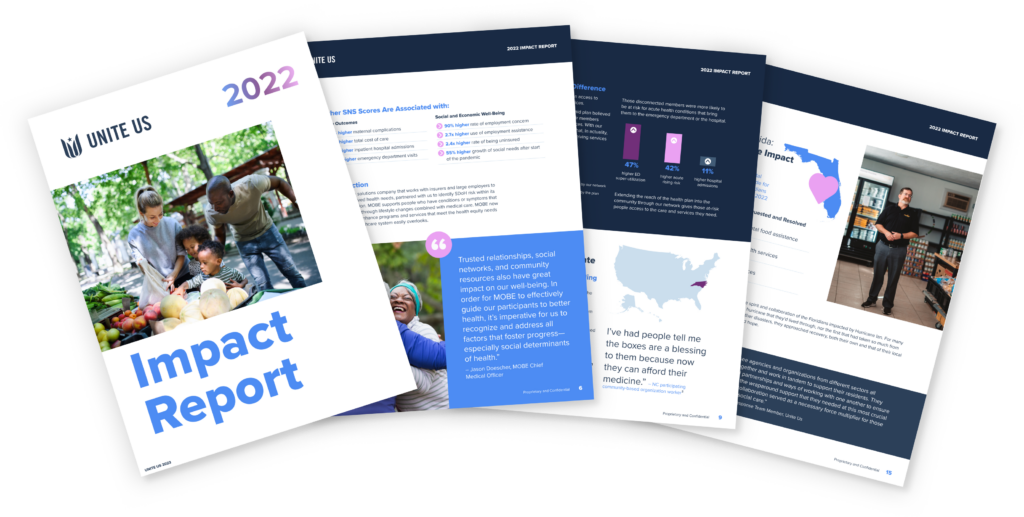
Health is not just Healthcare
By Taylor Justice
COORDINATING SERVICES TO IMPROVE HEALTH OUTCOMES AND LOWER COSTS
In many cases, when individuals go to the emergency room with a medical problem, healthcare providers will treat their immediate medical needs, then release them. If the same individuals are evicted from their homes, a local government agency might help them locate a clean, affordable place to live. If they have recently lost their job, a nonprofit in the area might be able to help them gain new skills and employment.
But chances are, the hospital, the government agency, and the nonprofit organization will operate and provide services separately, completely independent of the other, despite serving the same individuals who have interrelated needs.
FROM MEDICAL CARE TO OVERALL CARE
These days, there is a growing recognition that health is more than just healthcare, and that social determinants – such as housing, access to healthy food, education, and employment – play an important role in a person’s overall well-being.
Let’s continue with a more specific example, say a 40 year old male admitted to the emergency room came in because he had trouble breathing. After being laid-off from his job, this long-time asthmatic couldn’t afford to live in his apartment, much less his asthma medication. The stress of being out of work and on the street took a toll on his health and led him to the only place he could go for his immediate health needs: the emergency room.
But what if he had sought help right after losing his job and had a coordinated system ofhealthcare and social services available to him, that could have addressed his whole self and his many interconnected needs?
As healthcare providers and community-based organizations (CBOs) realize that they need each other to ensure a patient’s overall well-being and success, partnerships are emerging. These partners may include traditional healthcare providers, hospitals and clinics, public health and other government agencies (Dept. of Public Housing, Dept. of Aging), private insurance companies, foundations, schools, grocery stores, and more. They come together with a focus on improving the health outcomes and the wellbeing of people and communities.
FROM FEE-BASED TO VALUE-BASED SERVICES
Many of these partnerships are also driven by a desire to reduce costs. Changes in public policy and industry practice have encouraged these efforts. For example, the Affordable Care Act (ACA), passed in 2010, created new opportunities for improved outcomes and cost reductions through coordinated care. Instead of a fee-based system, where providers charge for each service provided, the ACA encourages value-driven models, in which a coordinated team takes a holistic approach to patient care, from onset to treatment and beyond, and is incentivized to deliver the best value-based on successful outcomes. In other words, they are motivated to provide the best care for the best price, which is a win-win for both provider and patient.
COORDINATING INTEGRATED WHOLE CARE
But how do these partnerships begin – and how do they work efficiently together? Withthousands of providers and organizations out there, finding and coordinating resources can gettricky.
That’s where technology can help – like the collaborative network platform designed by Unite Us. By building collaborative coordinated care networks that digitally inter-connect health and human service providers, Unite Us enables providers to seamlessly work together, support individuals by integrating all social determinants of health, track clients through their total health journey, and report tangible outcomes in a cohesive and collaborative ecosystem.
Unite Us is a Veteran-owned technology company that was initially founded to support Veterans andhas since expanded its reach to help communities across the United States, including thosesupporting the elderly, low-income and previously incarcerated populations.
To learn more about Unite Us click here
About Unite Us
Unite Us is the nation’s leading software company bringing sectors together to improve the health and well-being of communities. We drive the collaboration to predict, deliver, and pay for services that impact whole-person health. Through Unite Us’ national network and software, community-based organizations, government agencies, and healthcare organizations are all connected to better collaborate to meet the needs of the individuals in their communities.



